Baseball History Comes Alive Now Ranked #2 by Feedspot Among All Internet Baseball History Websites and Blogs!
Guest Submissions from Our Readers Always Welcome!
Scroll Down to Read Today’s Essay
Subscribe to Baseball History Comes Alive for automatic updates. As a Free Bonus, you’ll get instant access to my Special Report: Gary’s Handy Dandy World Series Reference Guide!
“The Peerless Leader,” Frank Chance Photo Gallery
Click on any image below to see photos in full size and to start Photo Gallery:
Frank Chance Takes the Yankees’ Managerial Helm!
“There is one thing I will never believe, and that is that the Sox are better than the Cubs” -Frank Chance, after the Cubs lost to the “HItless Wonder” White Sox in the 1906 World Series
“These are the saddest of possible words: ‘Tinker to Evers to Chance.’ ” -Franklin Pierce Adams, from Baseball’s Sad Lexicon
We all know that Frank Chance was a Hall of Fame manager. Under his leadership, the Cubs won four pennants in five years and two World Championships. The team is recognized as one of the first great dynasties from the early twentieth century. So highly valued was Frank Chance that by 1910 he became the highest-paid player in baseball, earning as much as $25,000 ($672,232 in current dollars).
The Cubs didn’t win another World Series until the arrival of Joe Maddon on Chicago’s North Side, 108 years later. But how many baseball fans are aware that “The Peerless Leader” also managed the Yankees?
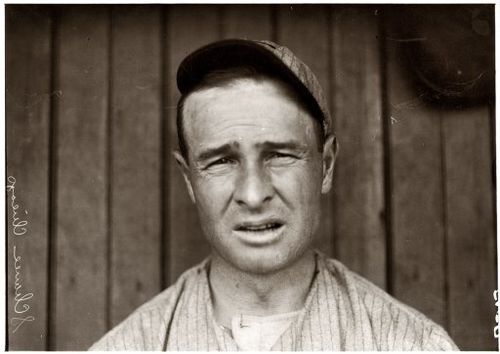
That’s right…on January 8, 1913, one hundred ten years ago today, Chance started his less-than-successful tenure at the helm of a lowly New York Yankees team (formerly known as the Highlanders). He signed a three-year contract worth the astronomical sum at the time of $120,000 ($3,042,020 in current dollars).
No Success in New York
It was wildly speculated that American League President Ban Johnson was responsible for Chance arriving in New York. He hoped the highly regarded Chance would turn the franchise around and serve as a counter to John McGraw’s Giants for the city’s affection. Frank entered into his new job with plenty of bravado, saying at the time:
“I will win the pennant for you before I get through in New York. That may sound like a bold statement to make at this time, but I ask you to remember my promise.”
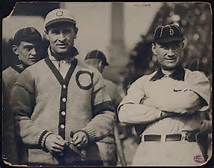
Unfortunately, two years later, he resigned. Johnson was quoted as saying, “Frank Chance stands forth as the biggest individual failure in the history of the American League.” In case you missed his meaning, he then elaborated on how he really felt:
“Chance had the material in New York and I think any other man would have made a success of the venture. Surely no one could have done any worse. Of all the players that were on the New York roster in 1913 and 1914, and there were any number of likely-looking recruits, Chance failed to develop even one man of class. Why, it was an outrage. And then when he made up his mind that he was a failure, or at least when he was ready to step down and out, he had the unmitigated nerve to ask for pay for services that he had not performed. That surely was gall, to say the least.”
In the featured photo above, we see a beautiful colorization of Frank Chance in 1913 as New York manager, just back from spring training in Bermuda, done by our resident baseball artist, Don Stokes. (Check out Don’s Facebook page)
While Chance’s stellar managerial record with the Cubs from 1905 to 1912 was the highest in franchise history (768-389, .664), his record in New York pales in comparison (.117-168, .411), proving once again that “it’s hard to win if you don’t have the horses.” That’s an old baseball adage that Casey Stengel validated many years later.
The Great Double Play Combination!
Frank Chance was also a very good ball player. During his 17-year Dead Ball Era playing career (1898-1914), Chance hit .296, with 1274 hits, 79 home runs, 598 RBIs, 798 runs, and a .394 on-base percentage. He led the league twice in stolen bases, and once in runs scored. His OPS+ of 135 places him well above his major league contemporaries. He led the team in batting average in 1903, 1904, 1905, and 1907. Chance is still the Cubs’ all-time career leader in stolen bases, with 400. In 20 World Series games, he hit .310 with six RBIs and 10 stolen bases.
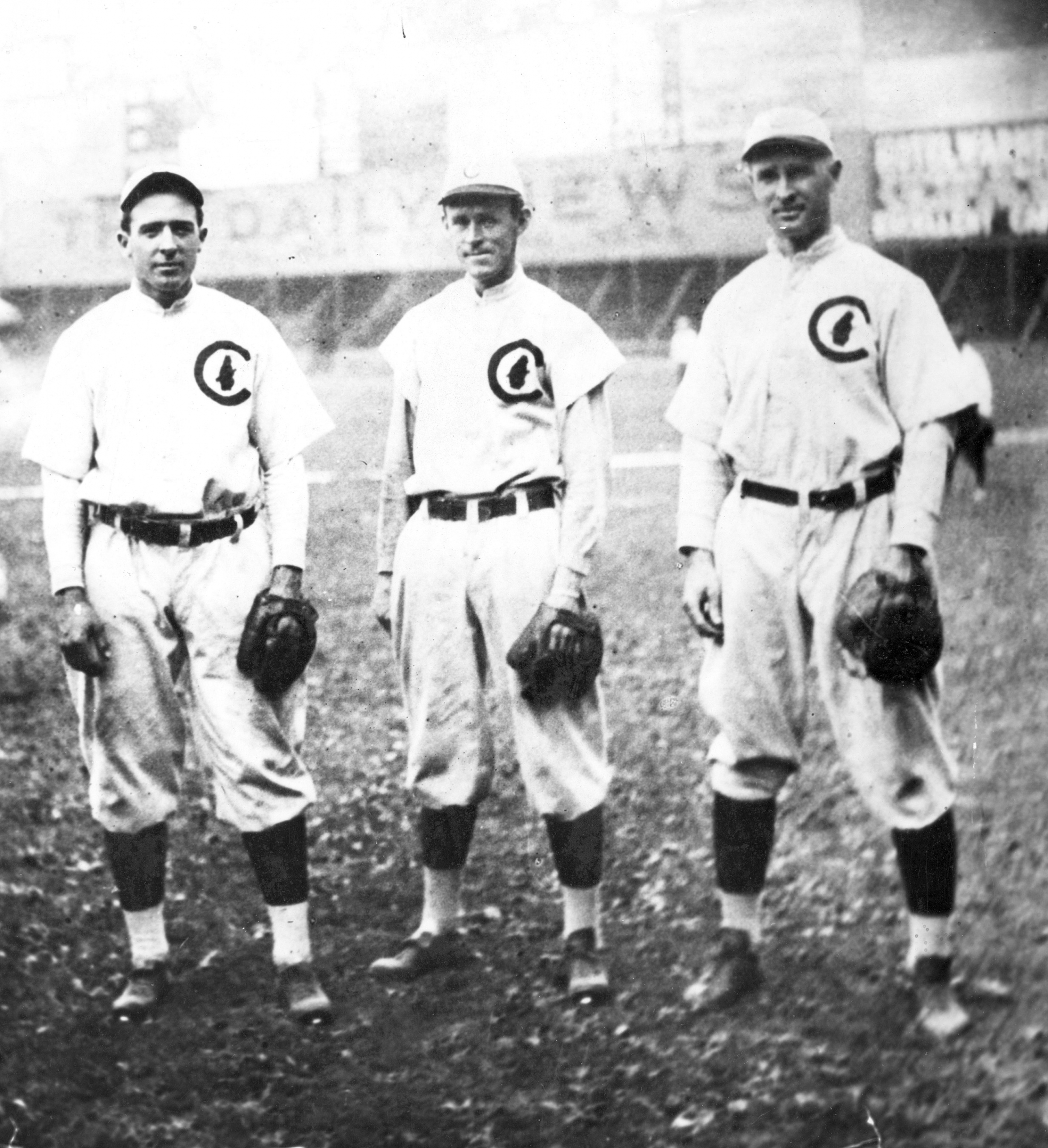
Of course, Frank Chance is primarily remembered as part of the famous Cub double-playcombination of Tinker-to-Evers-to-Chance. The trio was immortalized in the popular poem, Baseball’s Sad Lexicon, written by the 28-year-old newspaper columnist Franklin Pierce Adams in July 1910. Many baseball historians regard the poem as significantly contributing to the Hall of Fame selection of the three players, although Chance’s managerial statistics certainly qualify him. His 11-year overall record as a manager, including a year with the Red Sox in 1923, was 946–648 (.593).
A Strict Disciplinarian
Chance was regarded as a strict disciplinarian who frowned upon fraternization, known to fine his players for even as much as shaking hands with members of the opposing team. He also preached moderation in their personal lives, including avoiding alcohol. He was said to have forced center fielder Solly Hofman to delay his wedding until after the baseball season so that his marriage wouldn’t impair his play. In August 1911, Chance suspended Joe Tinker for the remainder of the season for using profanity, although he reinstated Tinker two days later.
During the baseball off-seasons, Chance worked as a prizefighter. James J. Corbett and John L. Sullivan, among the best fighters of the era, both considered Chance “the greatest amateur brawler of all time.”
Frank Chance, a great ball player, manager, and leader, died on September 15, 1924, aged 47, shortly after agreeing to manage the White Sox. He was elected to the National Baseball Hall of Fame in 1946. So today we’re happy to shine our baseball spotlight on the “Peerless Leader,” Frank Chance. Let’s take a moment to remember this great Hall of Fame manager.
Gary Livacari
Photo Credits: Featured photo colorized by Don Stokes; All others from Google search
Information: Excerpts edited from the Frank Chance Wikipedia page; and from article on Frank Chance in New York in Baseball History Daily. Statistics from Baseball-Reference.com
Subscribe to our website, “Baseball History Comes Alive!” with over 1200 fully categorized baseball essays and photo galleries, now closing in on the one million hits mark with 914K hits and over 750 subscribers: www.baseballhistorycomesalive.com
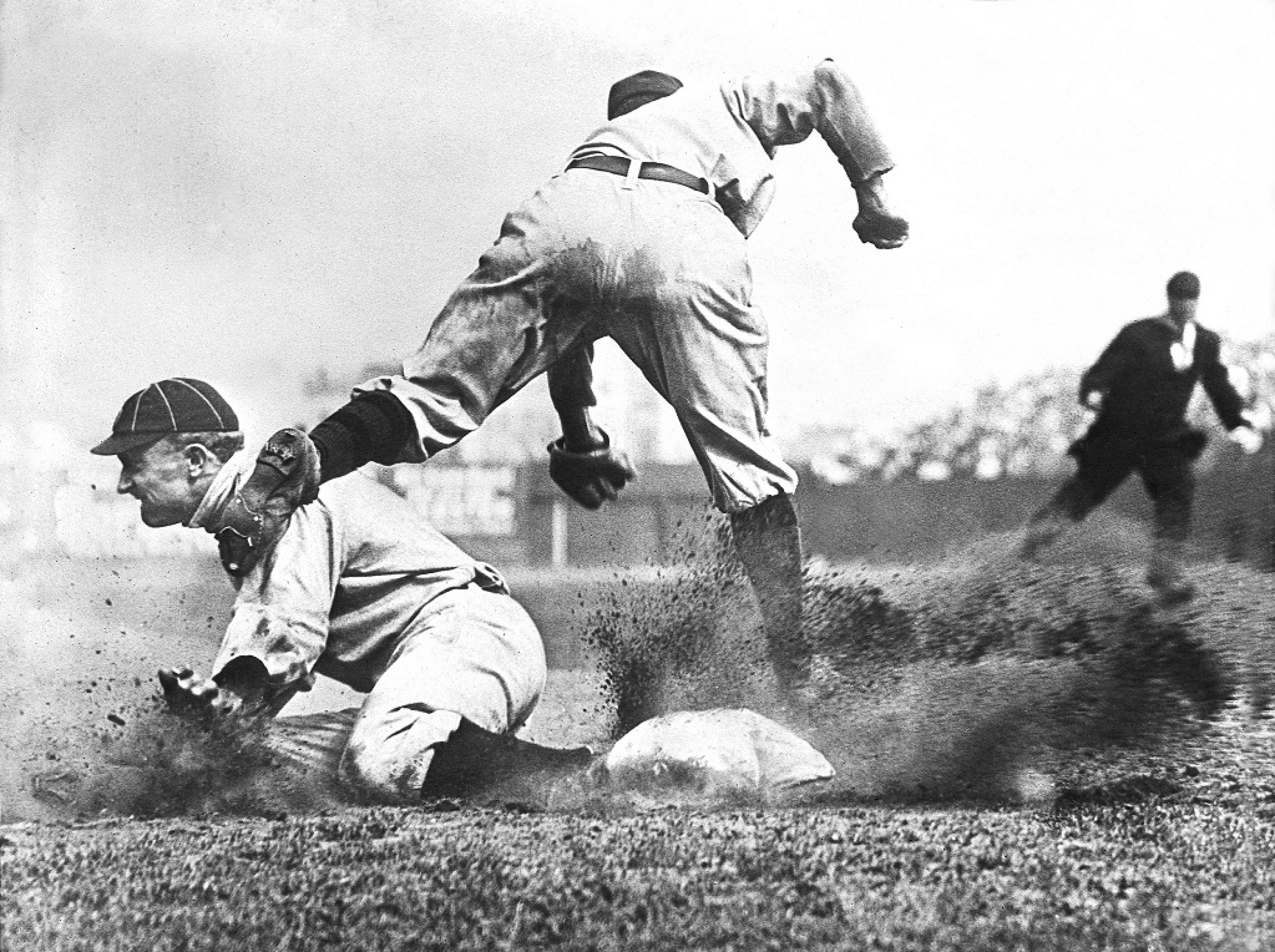
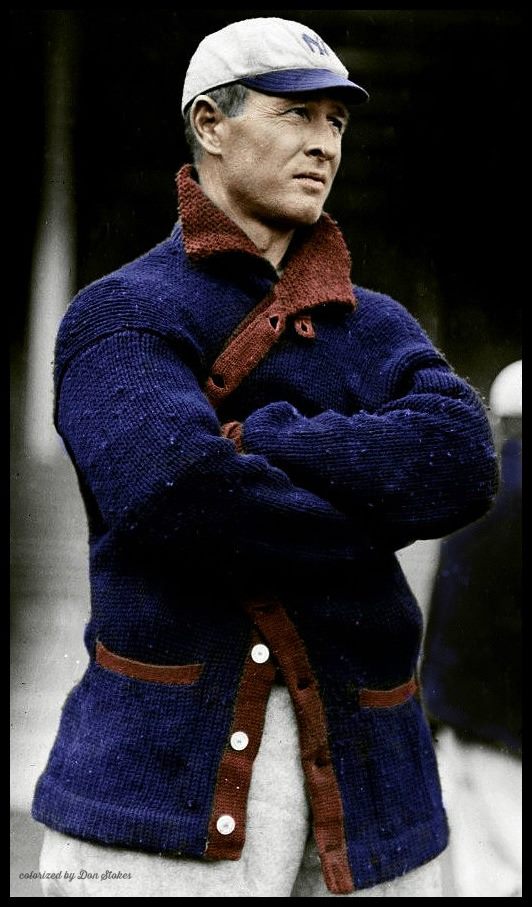
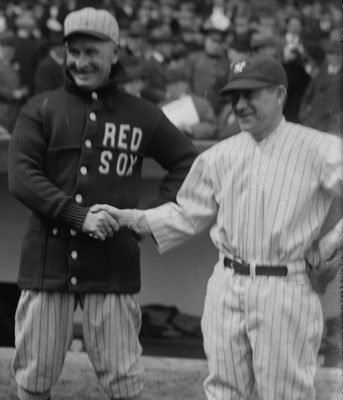
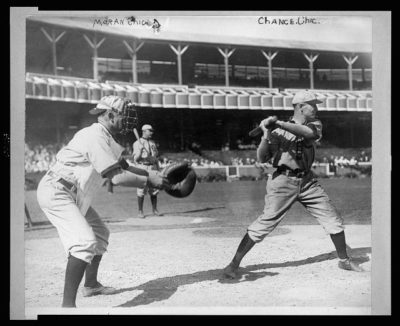
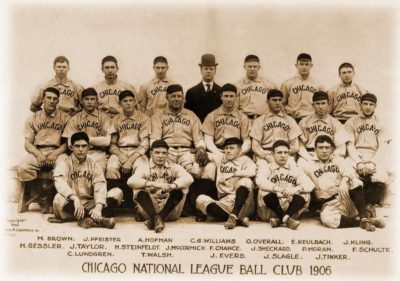
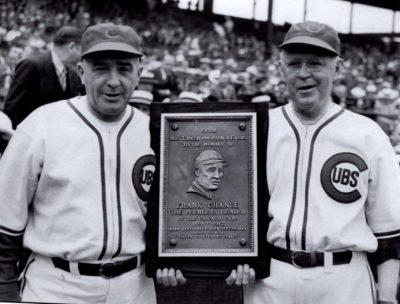
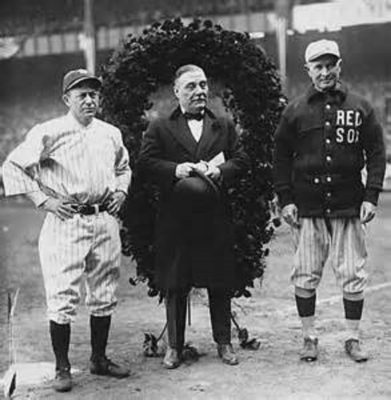
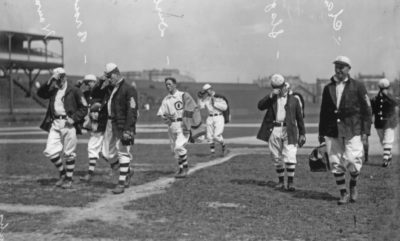
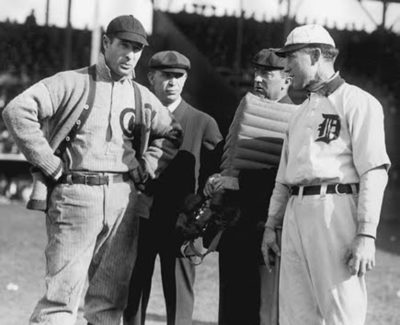
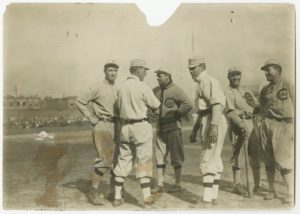
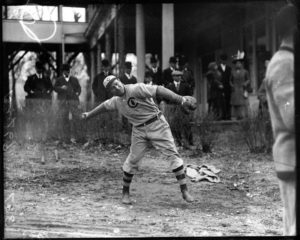
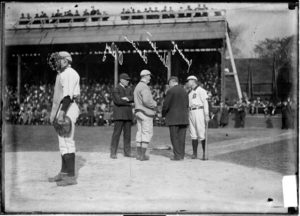
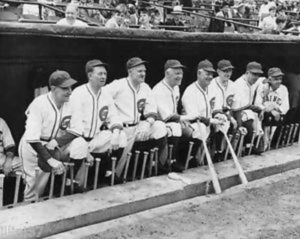
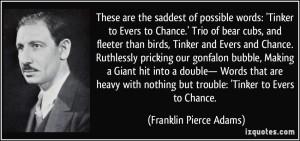
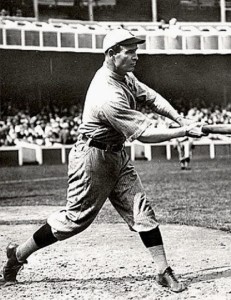
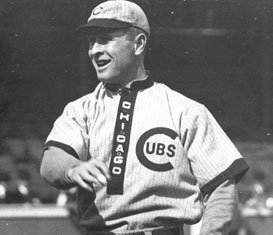
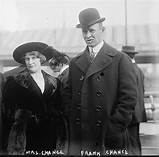
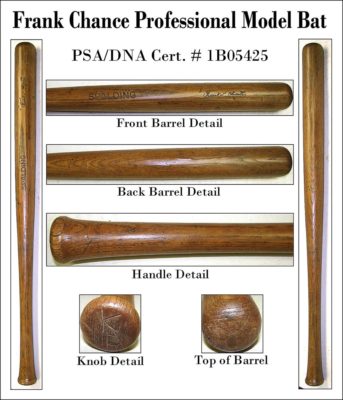
Hey Gary:
Until today, Chance was the last name in a DP combo I’ve heard about forever. Thanks for putting meat on the bones of the “destination” man.
As you know, I came to this sight by invitation to sign a petition to FiNALLY install Gil Hodges in the HOF. Little did I know how much I’d learn about some of the exemplary players who preceded him in our sport. By the way, Gary, I think Gil, too, died at the age of 47, same as Frank Chance. Considering their career paths were so similar, first basemen, highly successful managers, I find that a little eerie.
Kind regards,
Joan
Thanks Joan for the kind words. You made some geat points that I hadn’t thought of before. You’re right…it is a bit eerie.
Joan, you’re a real old-timer–almost as old as me. One friend toasted me at a birthday party: “Bill is like a fine wine…he just keeps getting older!”
Nice tidbit, Gary, on Frank Chance re his boxing ability. Where else but on BHCA!
Ump Jocko Conlan said Chance was the most graceful first baseman he ever saw, so smooth around the bag. But then added he was a crook. You may have to research that one.
Thanks Bill…great comment and great info, as usual!
Hey Bill:
Is it possible Jocko Conlan was referring to the way Frank Chance played first base rather than aspersions on his personal honesty. I hope so.
Regarding my age, sir, when I refer to old friends, it has more than one meaning. I think I’m older than you, Bill.
Best regards,
Joan
Joan, we’re close in age but still vibrant!
Afraid Conlan was casting aspersions on Frank’s personal honesty, but I’ll check it out further.
Perhaps Jocko Conlan was referring to Hal Chase?
That’s a real good observation…and possibly true!